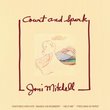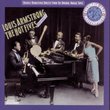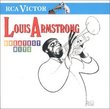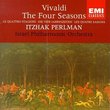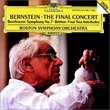| All Artists: Bach, Biggs, Carlos, Casals, Ormandy Title: J.S. Bach - Greatest Hits Vol 1 Members Wishing: 0 Total Copies: 0 Label: Sony Release Date: 10/25/1990 Genre: Classical Styles: Opera & Classical Vocal, Chamber Music, Forms & Genres, Concertos, Suites, Historical Periods, Baroque (c.1600-1750), Modern, 20th, & 21st Century, Instruments, Keyboard, Strings Number of Discs: 1 SwapaCD Credits: 1 UPC: 074643943123 |
Search - Bach, Biggs, Carlos :: J.S. Bach - Greatest Hits Vol 1
 | Bach, Biggs, Carlos J.S. Bach - Greatest Hits Vol 1 Genre: Classical
|
CD DetailsSimilarly Requested CDs
|
CD ReviewsOrmandy really shines here Alan Majeska | Bad Axe, MI, USA | 09/15/2005 (5 out of 5 stars) ""Bach's Greatest Hits, Volume 1," is a compilation of 8 pieces showing Bach as a versatile composer, and also what was available in Columbia records' catalog in the late 1960s. The Ormandy and Casals tracks are from the 1960s; the Walter Carlos track from around 1970.
Although the period instrument movement of the late 1970s/80s to the present has changed many listeners' opinions and attitudes of how Bach and most Baroque music in general should sound, the works presented here have merit and are very well played and recorded. Ormandy and the Philadelphia Orchestra play Bach's "Preludium in E Major," "Sleepers Wake" (based on the chorale, "Wachet auf" from Cantata 140, for Advent) a "Little Suite" based on several selections from the "Notebook for Anna Magdalena Bach" including the "Minuet in G", and "Bist du bei mir" (arranged by Thomas Frost), Eugene Ormandy's own arrangement of the "Toccata and Fugue in D Minor", and "A Mighty Fortress is our God" in a chorale like arrangement based on Bach's original. Pablo Casals and the Marlboro Festival Orchestra play the "Air" from Orchestral suite No. 3 in D Major; E Power Biggs with Zoltan Rosznyai and the Columbia Chamber Orchestra present "Jesu, Joy of Man's Desiring" and Walter Carlos plays III from the "Brandenburg Concerto No. 3 in G Major", from a fuller recording of "Switched ON Bach" recorded on synthesizers and similar new keyboards in the late 1960s. This disc may make purists who like Bach as performed by John Eliot Gardiner, Trevor Pinnock, Jordi Savall, and Christopher Hogwood gnash their teeth with rage. But if you like the sound of a full orchestra like the Philadelphia playing in a grand style, you will like this. I like it, and I'm a church organist: the transcriptions for orchestra of "Sleepers, Wake" and "Toccata and Fugue in D minor" do no offend at all. Indeed, they serve the greatness of Bach's music. Would Bach himself have liked this, or other Romantic treatments of his music? It's hard to say, but I'm thankful to have this available; I like both authentic (some) and more Romantic approaches to Bach." |

 Track Listings (8) - Disc #1
Track Listings (8) - Disc #1


